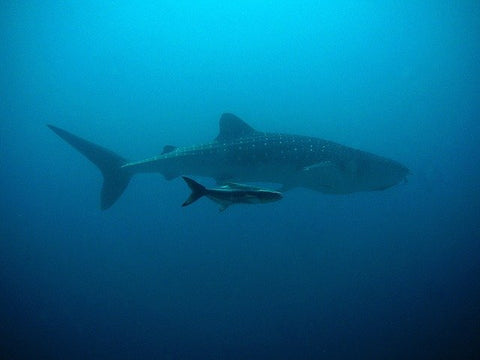

Human Oceanic Impact
The acceleration of modern technology has allowed Sapiens to easily harvest resources from land and sea, meaning that human activity has spread- quite literally - to every corner of the globe. Although it seems clear that interference with these environments will have lasting impacts on the other species that live there, the ways in which those impacts manifest is less so.
Human activity on and in the great oceans provides the primary food sources for 3.5 billion people worldwide. Less considered (but also consistently harvested) are salts and minerals, tidal energy, fresh water, and of course, deep sea oil.

The methods we employ to extract each of these resources have a direct physical impact on the wildlife below the surface. And while we may know the obvious crimes (habitat destruction, population depletion, chemical pollution, etc.), there's another to be aware of: We're really, really, noisy.
Anthropogenic Noise
Anthropogenic noise is is human-generated noise, be it purposeful or accidental. Our obstreperousness in the ocean is especially harmful for several reasons: 1) Many oceanic species are especially sensitive to sound waves, and rely on certain frequencies for mating, communication, predator-prey activities and more, and 2) sound waves travel much more easily through ocean environments - about for times so, to be exact.

As air-breathing humans, we are further removed from the problem at the surface. The air-sea barrier reduces the intensity of sound by over 1000 Hz., meaning that as we send sound waves below from the surface, we are spared from the noise forced upon the creatures below us.
Sharks and Noise Pollution
Sharks are especially sensitive to noise pollution. Differing frequencies have been shown to impact predatory responses, with low frequencies eliciting attractive responses, and sharp, high frequencies eliciting withdrawals. Noise from deep-sea drilling and shipping activity therefore impacts the ability of sharks to determine prey location and accessibility, as well as a host of other behaviours.

Impacts of Anthropogenic Noise on Marine Life (Hansjoerg et al. 2016)
The Shark Legend Bracelet
Legend has partnered with the Bimini Shark Lab to help support their mission to conserve and protect sharks. Each bracelet comes with a card that allows you to follow along with research of the sharks the lab is conducting.



